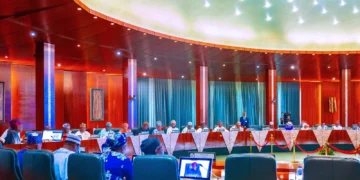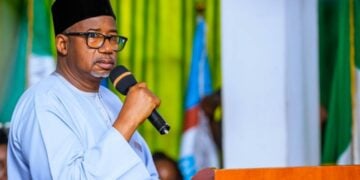The Civil Society Organization, Society for International Relations Awareness (SIRA), said the ongoing struggle for freedom in Western Sahara has sparked renewed calls for independence, warning that the region’s stability hangs in the balance.
SIRA stated this at yesterday’s Abuja session of the International Conference to End Colonialism in the World, themed “The Forgotten Peoples: International Conference to Decolonize the World.”
Speaking with journalists on the sidelines of the event, SIRA President Owei Lakemfa highlighted the long-standing occupation of Western Sahara by Morocco, drawing parallels between individual and national enslavement.
He explained that the issue has deep roots, dating back to Spain’s controversial decision to hand over Western Sahara to Morocco and Mauritania during decolonisation.
While Mauritania eventually withdrew, Morocco maintained its grip on the territory, leaving the Sahrawi people scattered across occupied lands and refugee camps in Algeria.
Lakemfa lamented that recent diplomatic missteps, including Nigeria’s Ministry of Green Energy visit to Morocco without recognising Western Sahara’s sovereignty, have raised eyebrows.
He said, “As Morocco continues to push for regional influence, having been rebuffed in its bids to join ECOWAS and the European Union, calls are growing louder for the nation to reconsider its stance.
Morocco is already blessed and richly endowed, and it’s time to leave its neighbour alone and let them survive.”
The president emphasised the urgency of freeing these territories, noting that the persistence of colonial rule in any form is a significant problem akin to the enslavement of individuals or nations.
“We are urging Morocco, a nation already blessed with abundant resources, to allow its neighbour to thrive independently.
Notably, Nigeria has played a significant role in this effort, having officially recognised Western Sahara’s sovereignty in 1984, during General Buhari’s tenure as head of state.
“As momentum builds, the hope is that within the next four to six years, a significant number of these territories will finally achieve self-governance, marking a pivotal step forward in the global push for freedom and equality,” he said.
Also speaking, former Nigerian Foreign Affairs Minister Professor Ibrahim Gambari said, “As long as many people remain not free under colonialism, none of us can consider ourselves accessible.
“The freedom of all oppressed people, colonised people is paramount; without it, international peace and security is truly endangered.
“United resolutions are plenty in supporting the end of colonialism, but they don’t self-implement; therefore, we have to organise to make sure those territories under colonial rule or not self-governing must be independent as soon as possible.”











